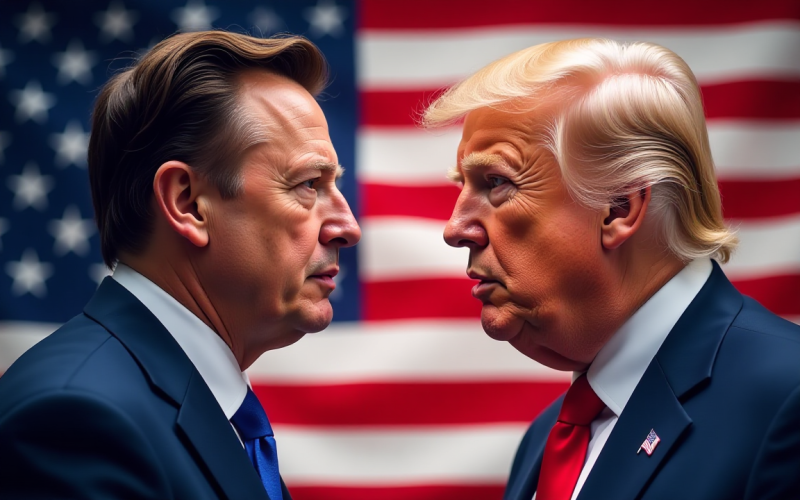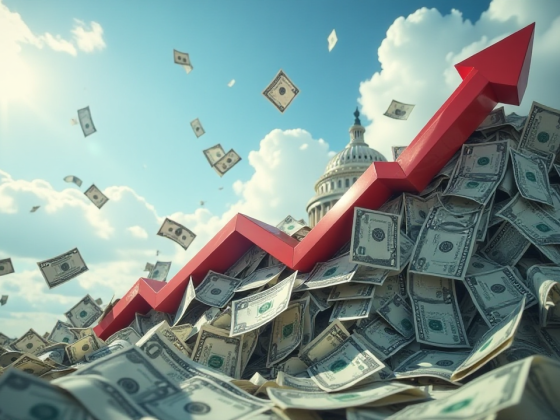Tesla CEO Elon Musk has launched a new political party in the United States, declaring the formation of the “America Party” on Saturday.
The move follows Musk’s fallout with President Donald Trump over a sweeping tax and spending bill that Musk criticized for deepening the nation’s fiscal woes.
The announcement was made on Musk’s social media platform X, formerly Twitter, and marks the billionaire entrepreneur’s boldest political step yet.
“When it comes to bankrupting our country with waste & graft, we live in a one-party system, not a democracy,” Musk wrote.
“Today, the America Party is formed to give you back your freedom.”
While Musk offered few operational details about the new party, he suggested that it would aim to influence key congressional races, potentially becoming a swing vote in a sharply divided legislature.
By a factor of 2 to 1, you want a new political party and you shall have it! When it comes to bankrupting our country with waste & graft, we live in a one-party system, not a democracy. Today, the America Party is formed to give you back your freedom.
From kingmaker to critic: The Musk-Trump split
Musk’s pivot to forming an independent political party is a sharp departure from his earlier support of Donald Trump.
Last year, Musk played a pivotal role in backing Trump’s 2024 presidential campaign, providing substantial financial support and spearheading voter mobilization efforts.
Following Trump’s victory, Musk was appointed a senior adviser in the new administration, overseeing the newly created Department of Government Efficiency.
However, their alliance unraveled over what Musk now derides as Trump’s “big, beautiful bill” — a legislative package that enacts sweeping tax cuts and spending increases without corresponding offsets.
Economists estimate the law could add over $3 trillion to the national debt over the next decade.
Trump responded with derision, calling Musk’s America Party “ridiculous” and warning that third parties only sow “confusion and chaos.”
“I am saddened to watch Elon Musk go completely ‘off the rails,’” Trump wrote on Truth Social. “Third parties never work. It’s a waste of time.”
The announcement has also drawn criticism from the business world. James Fishback, CEO of Invest Azoria, postponed the public listing of an ETF linked to Tesla, citing concern over Musk’s divided focus.
“This creates a conflict with his full-time responsibilities as CEO of Tesla,” Fishback said, calling on the Tesla board to take action.
America’s history of two-party dominance
Historically, third-party efforts in the US have struggled to gain traction.
From Ross Perot’s Reform Party to the more recent “No Labels” movement, attempts to break the two-party stranglehold have typically faltered due to structural and cultural barriers.
The American political system, shaped by a winner-take-all electoral framework and reinforced by decades of political socialization, tends to marginalize alternatives to the Democratic and Republican parties.
The Electoral College, single-member congressional districts, and lack of proportional representation have all contributed to maintaining the two-party status quo.
The dominance of two parties in the US traces its roots back to the country’s early political history.
Though the Constitution does not mention political parties, factions emerged swiftly — first the Federalists and Anti-Federalists, and later the Democrats and Republicans, which have persisted since the mid-1800s.
Over time, this binary system has been reinforced by cultural norms, campaign finance networks, and entrenched party infrastructures.
Voters are often reluctant to back third-party candidates, fearing that their vote may be “wasted” or indirectly aid their least-preferred major party.
Is there room for a third party now?
Despite these structural obstacles, recent polling suggests growing dissatisfaction with both major parties.
A new poll by Quantus Insights found that 40% of voters would consider supporting a political party created by Musk.
Fourteen percent said they were “very likely” to support such a party, while 26% said they were “somewhat likely.”
Political analysts note that Musk’s brand of politics — fiscally hawkish, socially libertarian, and technocratic — appeals to a group that remains politically homeless.
Nate Cohn, chief political analyst at The New York Times, argues in recent years, a new political constituency has started to take shape — one that doesn’t fit neatly into either the Democratic or Republican camps.
“The emergence of this kind of marginalized constituency is the overlooked precondition for a third party. Mr. Musk, while hardly representative, is an example of someone who falls into this group,” he writes.
According to Cohn, neither party has yet found an easy way to absorb its preferences, and it’s uncertain whether they ever will.
Cohn says the emerging constituency doesn’t have a name yet, but favours things like deficit reduction, deregulation, free trade and high-skilled immigration.
“It may be recognizable by the labels its critics on both the left and right have already assigned: “neoliberals” or “globalists.” (Though, to be fair, this new group doesn’t necessarily idealize markets or oppose government spending.),” he says.
What’s next for the America Party?
While Musk has not declared an intention to run for office himself, he has hinted at targeting two or three key Senate seats and up to ten House races.
With razor-thin legislative majorities in Congress, even a small bloc could have outsized influence on future policy.
Musk’s party, he claims, will be a “deciding vote on contentious laws,” acting as a check against entrenched political interests and aligning with “the true will of the people.”
Whether the America Party can translate celebrity and capital into political viability remains to be seen.
Third parties have historically suffered from a lack of organizational depth, regional reach, and ballot access.
Moreover, Musk’s combative personality and controversial business dealings could alienate potential allies.
Still, his deep pockets, massive social media following, and reputation as a disruptor make him an unusual — and potentially formidable — player in American politics.
The post Elon Musk forms ‘America Party’: does the US have room for a third party? appeared first on Invezz


